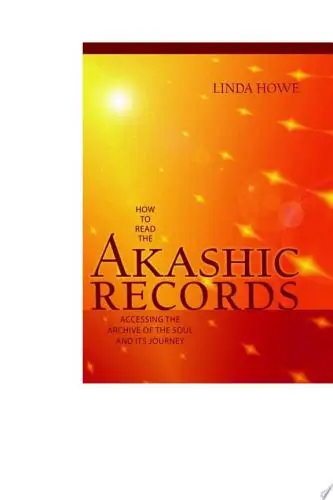Key Approaches to Biblical Ethics
An Interdisciplinary Dialogue
What's it about?
Key Approaches to Biblical Ethics by Volker Rabens offers you a thoughtful exploration of ethical frameworks derived from biblical texts. You'll discover how various interpretations can guide moral decision-making in contemporary contexts. The book examines key themes such as justice, love, and community, providing insights into how these principles can shape ethical practices today. By understanding different approaches, you'll gain a deeper appreciation for the relevance of biblical ethics in modern life, helping you navigate complex moral dilemmas with clarity and purpose.
About the Author
Volker Rabens is a scholar specializing in New Testament studies, with a focus on Pauline theology. His works explore the themes of ethics and community in early Christianity. Rabens is noted for his analytical approach and insightful interpretations of relational dynamics within biblical texts.
5 Key Ideas of Key Approaches to Biblical Ethics
The Power of Intentional Living
Living with intentionality and purpose based on biblical ethics guides more meaningful and fulfilling life choices.
It's like working on a puzzle where each piece represents a decision aligned with your core values; only when each piece is intentional, does the picture become clear and complete.
- Creates clarity: Intentional living clarifies values and priorities in decision-making.
- Provides focus: Directing actions towards what truly matters leads to a purposeful path.
- Enhances life satisfaction: Meaningful choices rooted in ethics increase overall life satisfaction.
Write down your top three core values from biblical insights and reflect on how you can align your immediate decisions with them.
It's easy to mistake busyness for productivity; focus on being purposeful rather than just active.
Embrace Community Wisdom
Community insights and shared wisdom from biblical teachings can drastically improve personal growth and ethical decision-making.
Imagine baking a cake: the individual ingredients might not shine alone, but when combined, they create something wonderful. Similarly, wisdom shared within a community strengthens and enriches personal ethics.
- Builds stronger connections: Engaging with community wisdom fosters deeper relationships.
- Broadens perspectives: Exposure to diverse viewpoints enhances understanding and reduces biases.
- Supports ethical growth: Collective insights help in aligning personal ethics with a broader community standard.
Join a discussion group or community activity centered around shared values to immediately engage with diverse perspectives.
Don't isolate yourself in echo chambers; value differing opinions even when they challenge you.
The Impact of Humility
Practicing humility fosters an environment for continuous growth and deepens ethical foundations.
Consider a tree; the stronger its roots, the taller it grows. Humility is about nurturing those deep roots of learning and openness to thrive.
- Encourages learning: Humility keeps the mind open to new information and experiences.
- Improves relationships: Humble individuals foster trust and cooperation within groups.
- Reinforces ethical behavior: A humble approach acknowledges personal limitations and ethical growth areas.
Reflect on a recent experience where being open to learning could have improved the outcome, and draw a lesson from it.
People often confuse humility with self-deprecation; it’s about knowing you don’t have all the answers, not diminishing your worth.
Deeper knowledge. Personal growth. Unlocked.
Unlock this book's key ideas and 15M+ more. Learn with quick, impactful summaries.
Read Full SummarySign up and read for free!
Key Approaches to Biblical Ethics Summary: Common Questions
“Biblical ethics is not a set of moral imperatives but a dynamic relationship between God and humanity.” This quote from Volker Rabens' Key Approaches to Biblical Ethics really encapsulates the book’s core thesis. I was captivated by his argument that ethical behavior emerges from the covenantal relationship with God, challenging the traditional view of ethics as merely a list of rules to follow.
One striking section delves into how cultural context influences our interpretation of Scripture, leading to both insightful applications and some head-scratching inconsistencies. For instance, Rabens discusses how different historical and social settings can manipulate the reading of biblical texts, leading to varied ethical conclusions that can sometimes feel contradictory. This made me reflect on texts like The Moral Vision of the New Testament by Richard Hays, where the interplay of context and ethics is also a significant theme.
Overall, I found Rabens' exploration enlightening yet complex, leaving me both inspired and questioning. It’s a thought-provoking read for anyone interested in the intersections of faith and ethics. If you enjoy deep dives into biblical interpretation, I highly recommend you check it out!
Experience Personalized Book Summaries, Today!
Discover a new way to gain knowledge, and save time.
Sign up for our 7-day trial now.
No Credit Card Needed

Similar Books

The Hobbit
J.R.R. Tolkien
Fichte
Johann Gottlieb Fichte
English Spirituality
Gordon Mursell
Serpent Rising: The Kundalini Compendium
Neven Paar
Feeling Is the Secret
Neville Goddard
How to Read the Akashic Records
Linda Howe
I Who Have Never Known Men
Jacqueline Harpman
Macbeth
William Shakespeare
Hamlet
Shakespeare
When Crickets Cry
Charles MartinTrending Summaries

Peak
Anders Ericsson
Never Split the Difference
Chris Voss
Smart Brevity
Jim VandeHei
The Psychology of Money
Morgan Housel
The First 90 Days
Michael D. Watkins
Atomic Habits
James Clear
Thinking, Fast and Slow
Daniel Kahneman
The Body Keeps the Score
Bessel van der Kolk M.D.
The Power of Regret
Daniel H. Pink
The Compound Effect
Darren HardyNew Books

Comprehensive Casebook of Cognitive Therapy
Frank M. Dattilio
The White Night of St. Petersburg
Michel (Prince of Greece)
Demystifying Climate Models
Andrew Gettelman
The Hobbit
J.R.R. Tolkien
The Decision Book
Mikael Krogerus
The Decision Book: 50 Models for Strategic Thinking
Mikael Krogerus
Fichte
Johann Gottlieb Fichte
Do No Harm
Henry Marsh
This is Going to Hurt
Adam Kay

